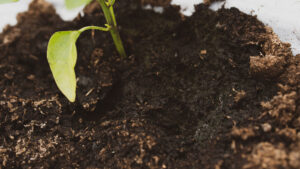Organic fertilizers are a popular choice for gardeners who want to improve soil health and promote sustainable gardening practices. Unlike synthetic fertilizers, which can be harmful to the environment and soil health, organic fertilizers are made from natural materials that provide long-term benefits to the soil and plants. In this post, we’ll explore the benefits of organic fertilizers and provide tips on how to apply them for optimal results.
Benefits of Organic Fertilizers
Organic fertilizers provide numerous benefits to both the soil and the plants. One of the main benefits is that they improve soil health by increasing the number and diversity of microorganisms in the soil. These microorganisms help to break down organic matter and release nutrients that plants can use.
Another benefit of organic fertilizers is that they provide a slow and steady release of nutrients over time. Unlike synthetic fertilizers, which release nutrients quickly and can cause plant burn, organic fertilizers release nutrients gradually and can help to prevent nutrient leaching.
Organic fertilizers also help to improve soil structure and water retention. They increase the amount of organic matter in the soil, which can improve soil structure and prevent soil erosion. Organic matter also helps the soil to retain water, which can reduce the need for watering and improve plant growth.

Types of Organic Fertilizers
There are many different types of organic fertilizers, each with its benefits and drawbacks. Here are some of the most common types:
- Compost: Compost is made from organic matter, such as food scraps, yard waste, and manure. It provides a slow release of nutrients and helps to improve soil structure and water retention.
- Worm castings: Worm castings are a rich source of nutrients and microorganisms. They are high in nitrogen and can help to promote plant growth and improve soil health.
- Fish emulsion: Fish emulsion is made from fish waste and is a good source of nitrogen and phosphorus. It quickly releases nutrients and is often used as a foliar spray.
- Bone meal: Bone meal is made from ground animal bones and is high in phosphorus. It provides a slow release of nutrients and can help to promote root growth and flower production.
- Blood meal: Blood meal is made from dried animal blood and is high in nitrogen. It provides a quick release of nutrients and can help to promote plant growth and green foliage.
Tips for Applying Organic Fertilizers
- Test your soil: Before applying any fertilizer, it’s important to test your soil to determine its nutrient content and pH level. This will help you choose the right fertilizer and ensure you’re not over-fertilizing.
- Follow the instructions: Each type of fertilizer has its own application rate and frequency. Be sure to follow the instructions on the package to avoid over-fertilizing or under-fertilizing your plants.
- Apply at the right time: Organic fertilizers should be applied at the right time to ensure optimal results. For example, bone meal is often applied before planting to promote root growth, while fish emulsion is often used as a foliar spray during the growing season.
- Use a spreader: A spreader can help ensure that the fertilizer is evenly distributed and prevents over-fertilization in certain areas.
- Water after application: After applying organic fertilizer, be sure to water your plants to help the fertilizer penetrate the soil and provide nutrients to the roots.
Organic fertilizers provide numerous benefits to the soil and plants and can be a sustainable choice for gardeners. By following the tips outlined above, you can ensure that you’re applying organic fertilizers for optimal results and promoting healthy soil and plant growth.
If you’re looking for high-quality, all-natural soil fertilizers, check out Farm to Garden. Visit our Contact page or email our team at https://farmtogarden.ca/contact/ to learn more.

